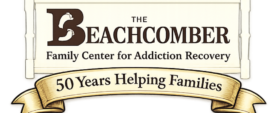Programs for outpatient treatment are just that—recovery initiatives that let patients live in their homes while receiving care. A great alternative for people with mild to moderate drug use disorders is outpatient treatment. Additionally, outpatient treatment serves as a step-down level of care for people who have finished a residential program and are in recovery.
Different levels of intensity are offered for outpatient programs, which typically concentrate on therapy, education, and creating a support system. The necessary intensity will depend on the individual’s needs for healing. The differences between the intense outpatient program (IOP) and basic outpatient treatment will be covered in this section.
Outpatient treatment: What is it?
Basic outpatient services provide a great choice for individuals who have finished an extended period of outpatient care or a residential treatment plan. Basic recovery services like individual and group therapy sessions, courses, and integration of the Twelve Steps are provided by outpatient treatment. While they are far less intense, outpatient programs provide many of the same therapeutic components as residential programs.
An integral component of the aftercare plan is outpatient treatment, which is a step down from a residential treatment program. After residential treatment, people are encouraged to have regular access to outpatient therapy and other outpatient programs. During the early months of recovery, ongoing therapy might shield the patient against the possibility of relapsing. It provides the assistance and direction needed to help the person overcome obstacles encountered during this delicate time.
Describe A program For Intensive Outpatients.
Substance abuse therapy is often provided in one of two settings: residential treatment or outpatient treatment. Residential therapy can be substituted with an intensive outpatient program (IOP). A residential treatment program entails a prolonged stay in a treatment facility where the patient receives continuous counseling, support, and supervision. Patients can receive therapy from the IOP in an outpatient environment while still living at home.
The treatment plan offered by the IOP might consider obligations to family and work. An Individualized Outpatient Program (IOP) allows a patient to live at home or in sober living during treatment hours and offers a variety of therapeutic activities for a predetermined number of hours each week. IOP programs can be used as an initial course of therapy for recently developed or minor addiction problems or as post-treatment once a residential program is finished.
How Outpatient Treatment Plans Are Organized
A predetermined number of hours per week are usually required for the individual to participate in the IOP, which is a part-time treatment program. Every IOP has a different curriculum based on the program’s philosophy and area of specialization. The IOP will direct the patient to a nearby detox facility; it does not offer detox treatments. The person is prepared to start the IOP plan after detox is finished.
An IOP is set up with a weekly schedule consisting of nine hours of programming or three blocks of three hours of therapy. A tailored treatment plan that establishes goals for the patient to achieve during the therapeutic regimen.
Three or four months is the typical duration of the IOP. After completing the IOP, the patient will transition to basic outpatient aftercare, which entails one or two classes or therapy sessions per week.
Treatment Components for Intensive Outpatient Programs
The core of the IOP is psychotherapy. The program will focus on individual and group therapy while assisting the participant in adopting more positive thought and behavior patterns. Without making significant adjustments to these routines, recovering from a substance use problem can be extremely challenging. An IOP will consist of psychotherapy as well as any additional therapies or activities that enhance the therapy sessions.
Components of IOP treatment include:
- Group therapy Family therapy Psychotherapy includes evidence-based treatments like CBT and DBT
- Relapse prevention and recovery techniques
- Education on substances
- therapy with two diagnoses
- A 12-Step Course
- Counseling on nutrition and fitness
- Medication-Supported Recovery (MSR): Instruction in mindfulness
- Visual treatment
- Pose
Conclusion
Generally speaking, outpatient treatment—whether it is IOP or basic Outpatient Rehab Fort Lauderdale—offers patients a lower degree of care after residential treatment or an alternative to residential treatment. Using the information above, you can choose which program best suits your needs in terms of recovery.
At Beachcomber, we offer evidence-based treatment for substance use disorders. We provide holistic addiction treatment, drug detox, relapse prevention strategies, family wellness programs, inpatient and outpatient programs, and a range of other services catered to the demands of every patient. Our guiding philosophy at Beachcomber affirms our commitment to meeting new difficulties and upholds our aim to rehabilitate each individual with dignity and respect. Please give us a call to learn more about our extensive offerings.






